Accueil - Laboratoire - Stéphane Richard
Le laboratoire de Stéphane Richard est situé à l’Institut Lady Davis de recherches médicales de l’Hôpital général juif, affilié à l’Université McGill, à Montréal, Québec.
Les recherches de Stéphane Richard portent sur l’élucidation des mécanismes de signalisation moléculaire dans les cellules normales et malades. Les recherches menées en laboratoire ont des implications sur le cancer du sein, l’immunothérapie et les maladies neurodégénératives.

De gauche à droite : Xin Liu, Zhenbao Yu, Chunxiao Zhao, Nivine Srour, Carson Vaux, Mu Hu, Cheng-Hsun (Sean) Hsieh, Stéphane Richard.
L’épigénétique fait référence à l’étude des changements héréditaires qui se produisent sans modification de la séquence d’ADN des gènes. Elle est principalement causée par des modifications d’histone et par la méthylation de l’ADN. Les anomalies épigénétiques se révèlent être des facteurs majeurs du cancer, des troubles génétiques ainsi que des maladies auto-immunes et du vieillissement.
Les cellules gèrent l’expression des gènes en enroulant l’ADN autour d’amas de protéines histones globulaires pour former des nucléosomes. Ces nucléosomes d’ADN et d’histones sont organisés en chromatine. Les changements dans la structure de la chromatine influencent l’expression des gènes. Par exemple, les gènes sont inactivés lorsque la chromatine est condensée et ils sont exprimés lorsque la chromatine est ouverte. Ces états de la chromatine sont contrôlés par la méthylation de l’ADN et les modifications des histones.
Plusieurs protéines impliquées dans l’épigénétique interagissent avec des enzymes modifiant les histones comme les histones méthyltransférases (HMT) et les histones désacétylases (HDAC). Perturber leur relation aura presque toujours de graves conséquences sur l’épigénome et l’organisation de la chromatine. Les séquences N-terminales des histones sont cruciales pour maintenir la stabilité de la chromatine et sont sujettes à de nombreuses modifications. La plupart des modifications telles que l’acétylation, la méthylation et la phosphorylation ont un rôle à jouer dans la régulation transcriptionnelle et ont le potentiel d’être oncogènes si elles entraînent, par exemple, une perte d’expression d’un gène suppresseur de tumeur.
Le laboratoire mène désormais des projets liés à la caractérisation biochimique et génétique des enzymes qui catalysent la méthylation de l’arginine, notamment les protéines arginine méthyltransférases qui sont surexprimées dans le cancer.
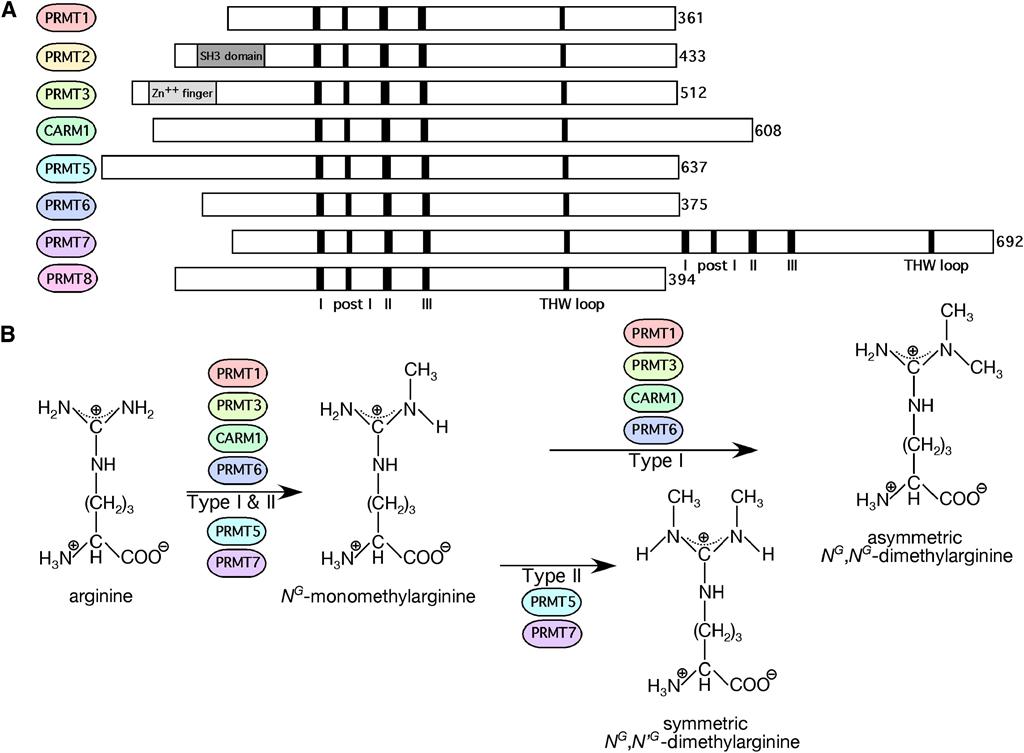
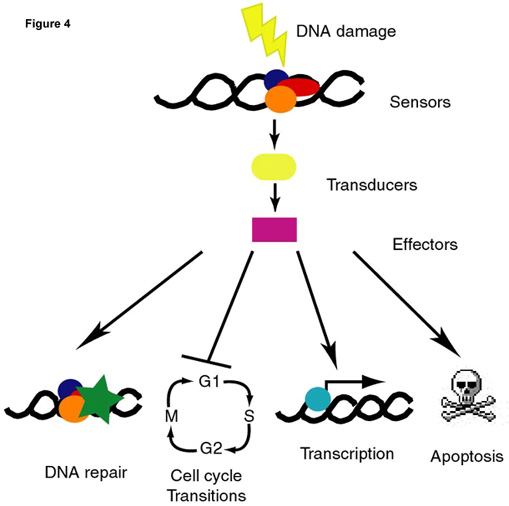
La stabilité du génome est essentielle au bon fonctionnement et à la survie de tous les organismes. Les dommages à l’ADN sont très fréquents et semblent constituer un problème fondamental pour la vie. Les dommages à l’ADN peuvent déclencher le développement d’un cancer et accélérer le vieillissement. La plupart des dommages à l’ADN sont éliminés par les enzymes de réparation de l’ADN, mais ces processus de réparation ne sont pas totalement efficaces. Les dommages à l’ADN, s’ils ne sont pas réparés, provoquent des erreurs lors de la synthèse de l’ADN conduisant à des mutations pouvant donner lieu à un cancer. Les points de contrôle du cycle cellulaire sont des voies de régulation qui régissent l’ordre et le calendrier des transitions du cycle cellulaire afin de garantir l’achèvement d’un événement cellulaire avant un autre. Lors de la détection de dommages à l’ADN, les points de contrôle du cycle cellulaire sont activés pour arrêter la progression du cycle cellulaire afin de laisser le temps de réparation avant que les dommages ne soient transmis aux cellules. En plus de l’activation des points de contrôle, la réponse aux dommages de l’ADN conduit à l’induction de programmes transcriptionnels, à l’amélioration des voies de réparation de l’ADN et, lorsque le niveau de dommage est grave, à l’initiation de l’apoptose. Les principaux régulateurs des voies de points de contrôle dans la réponse aux dommages de l’ADN sont les protéines kinases ATM (ataxie télangiectasie, mutée) et ATR (liées à l’ATM et à Rad3). Ces protéines sont au cœur de toute la réponse aux dommages de l’ADN. Ces deux protéines appartiennent à une famille unique de sérine-thréonine kinases caractérisées par un motif catalytique C-terminal contenant un domaine phosphatidylinositol 3-kinase.
Bien que l’ATM et l’ATR semblent phosphoryler bon nombre des mêmes substrats cellulaires, ils répondent généralement à des types distincts de dommages à l’ADN. Par exemple, l’ATM est le principal médiateur de la réponse aux cassures double brin (DSB) de l’ADN qui peuvent survenir lors d’une exposition aux rayonnements ionisants (IR). Les cellules dépourvues d’ATM ont des problèmes majeurs pour réparer les DSB et subissent une instabilité chromosomique majeure. D’un autre côté, l’ATR dirige la principale réponse aux dommages causés par les UV. En aval de ces protéines se trouvent deux familles de kinases de point de contrôle (CHK), les kinases Chk1 et Chk2, et leurs homologues. Ces kinases effectuent des sous-ensembles de la réponse aux dommages de l’ADN et sont des cibles de régulation par les kinases ATM et ATR. Selon le type de cellules, leur quantité et leur emplacement, il a été démontré que les dommages à l’ADN sont impliqués dans divers troubles du vieillissement et dans la carcinogenèse. Le développement du cancer et le processus de vieillissement peuvent être retardés en réduisant la charge d’ADN.
Le laboratoire étudie actuellement des projets impliquant la méthylation des protéines dans la réponse aux dommages de l’ADN.
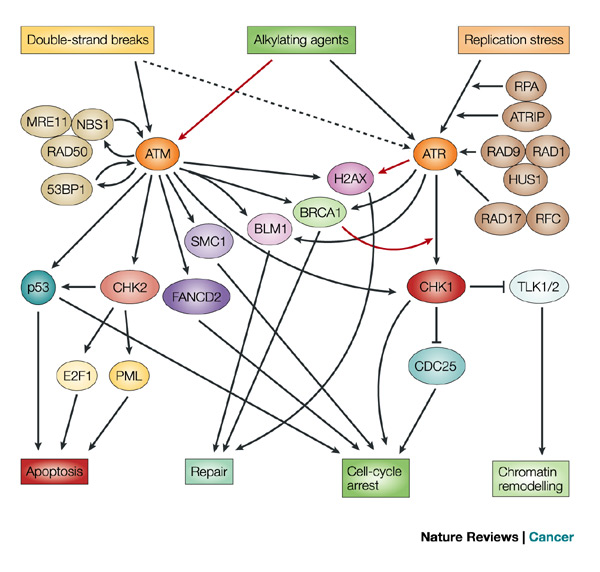
Les acides ribonucléiques (ARN) sont dérivés de l’ADN et programment les cellules pour qu’elles fabriquent des protéines. Il existe de nombreux types d’ARN dans les cellules, tels que les ARN de transfert (ARNt), les ARN ribosomiques (ARNr) et les ARN messagers (ARNm). Ils ont tous leurs fonctions respectives à remplir au sein des cellules.
Les ARN dans les cellules sont associés à des protéines de liaison à l’ARN (RBP) pour former des complexes ribonucléoprotéiques (RNP). Les RBP fonctionnent dans plusieurs processus cellulaires. Par exemple, les RBP sont impliquées dans la réplication de l’ADN, l’expression des gènes des histones, la régulation de la boucle R, la régulation de la transcription et le contrôle de la traduction. De nombreux RBP ont été identifiés comme des facteurs essentiels au développement des tissus somatiques, notamment des neurones et des muscles. Les informations génétiques stockées dans l’ADN chromosomique sont traduites en protéines via les ARNm. Cela permet un contrôle post-transcriptionnel de l’expression des gènes, conférant un rôle crucial aux protéines liant l’ARNm dans cette régulation. Le contrôle post-transcriptionnel peut se produire à de nombreuses étapes différentes du métabolisme de l’ARN, notamment l’épissage, la polyadénylation, la stabilité de l’ARNm, la localisation et la traduction de l’ARNm.
Les RBP sont associées à un grand nombre de maladies humaines, notamment la neurodégénérescence et les cancers. Le bon fonctionnement de ces réseaux est essentiel à la coordination des événements post-transcriptionnels, et leur perturbation peut conduire à des maladies.
Le laboratoire étudie actuellement des projets impliquant la méthylation de l’arginine des protéines de liaison à l’ARN du motif RGG/RG DDX5, AVEN, RBMX, QKI dans le cancer. Nous avons également des projets identifiant les moyens par lesquels l’inhibition de la méthylation de l’arginine peut renforcer les inhibiteurs des points de contrôle immunitaires et ainsi améliorer l’immunothérapie du cancer.
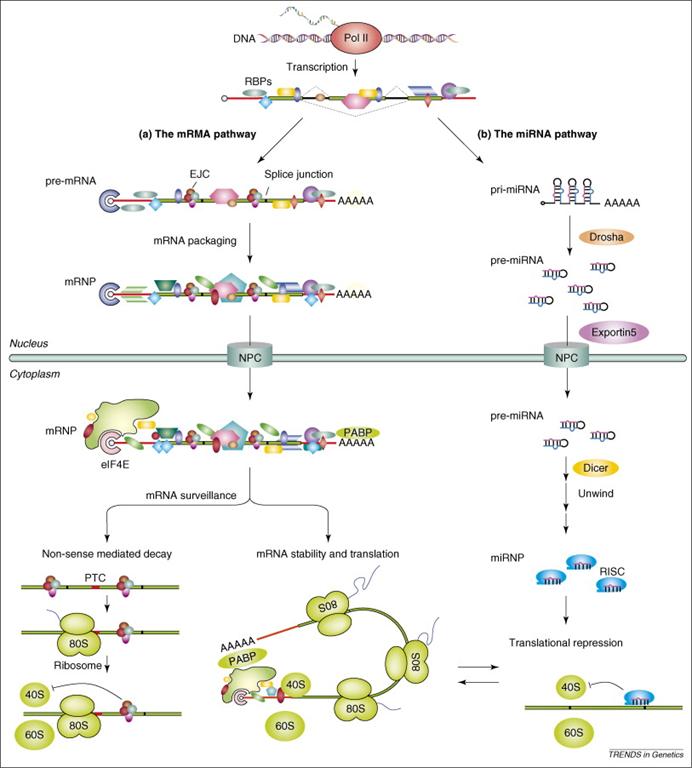
Contemporary research has uncovered a role for environmental copper in the development and progression of neurodegenerative diseases such as Alzheimer’s and Parkinson’s disease. Previous research implicated non-ceruloplasmin bound copper in the aggravation of neurodegenerative phenotypes. Our research explores the role of copper in ALS progression through monitoring of copper biomarkers and analyses of copper metabolism gene expression.
Lorem ipsum dolor sit amet consectetur adipisicing elit. Maxime mollitia, molestiae quas vel sint commodi repudiandae consequuntur voluptatum laborum numquam blanditiis harum quisquam eius sed odit fugiat iusto fuga praesentium optio, eaque rerum! Provident similique accusantium nemo autem. Veritatis obcaecati tenetur iure eius earum ut molestias architecto voluptate aliquam nihil, eveniet aliquid culpa officia aut! Impedit sit sunt quaerat, odit, tenetur error, harum nesciunt ipsum debitis quas aliquid. Reprehenderit, quia. Quo neque error repudiandae fuga? Ipsa laudantium molestias eos sapiente officiis modi at sunt excepturi expedita sint? Sed quibusdam recusandae alias error harum maxime adipisci amet laborum. Perspiciatis minima nesciunt dolorem! Officiis iure rerum voluptates a cumque velit quibusdam sed amet tempora. Sit laborum ab, eius fugit doloribus tenetur fugiat, temporibus enim commodi iusto libero magni deleniti quod quam consequuntur!

Stéphane Richard, PhD, est professeur distingué James-McGill de médecine et d’oncologie à l’Université McGill et directeur associé de la recherche à l’Institut Lady Davis de recherches médicales de l’Hôpital général juif de Montréal.
Stéphane Richard a obtenu son doctorat à l’Université McGill en 1991 en étudiant la neuroendocrinologie moléculaire. Il a effectué quatre années d’études postdoctorales moitié industrielles/moitié universitaires chez Pfizer Inc. (Groton, CT) et à l’Université de Washington (St. Louis, MO) avec les docteurs Patricia Connelly et Andrey S. Shaw, respectivement. En tant que chercheur postdoctoral, Stéphane Richard a étudié les mécanismes moléculaires de la signalisation cellulaire dans les cellules normales et cancéreuses. Il a débuté sa carrière indépendante à l’Institut Lady Davis de recherches médicales de l’Université McGill en 1995.
Stéphane Richard est un expert scientifique en recherche en biologie moléculaire dans les domaines du cancer et des neurosciences. Ses recherches visent à comprendre les rôles de la méthylation de la protéine arginine et des protéines de liaison à l’ARN dans des maladies telles que le cancer. Le groupe de Stéphane Richard étudie activement les rôles moléculaires de la méthylation des protéines et des protéines de liaison à l’ARN dans l’épigénétique, le métabolisme de l’ARN et la signalisation des dommages à l’ADN.

I received a BSc in Molecular Biology & Genetics from McMaster University in 2017. I am currently studying how mutations of dyskerin, a telomerase-associated protein, affect its interaction with other proteins, subcellular localization, and telomerase RNA abundance.

I received a BSc in Molecular Biology & Genetics from McMaster University in 2017. I am currently studying how mutations of dyskerin, a telomerase-associated protein, affect its interaction with other proteins, subcellular localization, and telomerase RNA abundance.
I am a Belizean pursuing a PhD in Anatomy and Cell biology at McGill University in Montreal. I completed my BSc in Biochemistry and Cellular and Molecular Biology and my MSc in Biochemistry at Memorial University in Newfoundland Canada. My research interest involves increased understanding stem and cancer cell dynamics and redox biology to be applied to therapeutics for health span extension.
I am a Belizean pursuing a PhD in Anatomy and Cell biology at McGill University in Montreal. I completed my BSc in Biochemistry and Cellular and Molecular Biology and my MSc in Biochemistry at Memorial University in Newfoundland Canada. My research interest involves increased understanding stem and cancer cell dynamics and redox biology to be applied to therapeutics for health span extension.
I am a Belizean pursuing a PhD in Anatomy and Cell biology at McGill University in Montreal. I completed my BSc in Biochemistry and Cellular and Molecular Biology and my MSc in Biochemistry at Memorial University in Newfoundland Canada. My research interest involves increased understanding stem and cancer cell dynamics and redox biology to be applied to therapeutics for health span extension.

I am a Belizean pursuing a PhD in Anatomy and Cell biology at McGill University in Montreal. I completed my BSc in Biochemistry and Cellular and Molecular Biology and my MSc in Biochemistry at Memorial University in Newfoundland Canada. My research interest involves increased understanding stem and cancer cell dynamics and redox biology to be applied to therapeutics for health span extension.
I am a Belizean pursuing a PhD in Anatomy and Cell biology at McGill University in Montreal. I completed my BSc in Biochemistry and Cellular and Molecular Biology and my MSc in Biochemistry at Memorial University in Newfoundland Canada. My research interest involves increased understanding stem and cancer cell dynamics and redox biology to be applied to therapeutics for health span extension.
I am a Belizean pursuing a PhD in Anatomy and Cell biology at McGill University in Montreal. I completed my BSc in Biochemistry and Cellular and Molecular Biology and my MSc in Biochemistry at Memorial University in Newfoundland Canada. My research interest involves increased understanding stem and cancer cell dynamics and redox biology to be applied to therapeutics for health span extension.

I come from Brazil, where I graduated in Biochemical Engineering at the Federal University of Paraná. I have more than four years of professional experience in manufacturing and quality assurance of reagents for molecular diagnostics. Now I’m interested in better understanding the role of the protein dyskerin and H/ACA ribonucleoprotein complexes in regulating telomere biology and cellular aging.

I come from Brazil, where I graduated in Biochemical Engineering at the Federal University of Paraná. I have more than four years of professional experience in manufacturing and quality assurance of reagents for molecular diagnostics. Now I’m interested in better understanding the role of the protein dyskerin and H/ACA ribonucleoprotein complexes in regulating telomere biology and cellular aging.
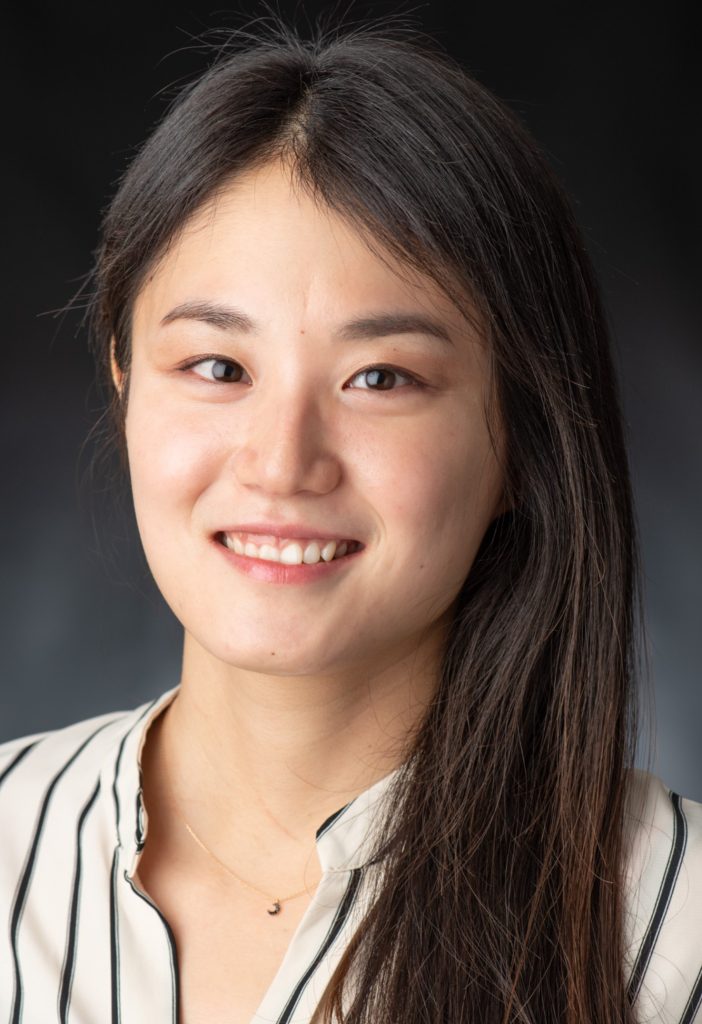
Linda completed her BSc in Biology at the University of Waterloo. During her undergraduate degree, she worked as a co-op student in the lab of Dr. Paul Mains where her project used C. elegans to describe gene variants that cause drug resistance in parasitic nematodes. After graduating, she worked for a year in the lab of Dr. Ryan Yuen at SickKids in Toronto investigating short tandem repeat expansions using Nanopore and Sanger sequencing. She is now pursuing her MSc in the Autexier lab and is interested in how a region of telomerase, known as the insertions in fingers domain (IFD), is involved in its localization and activity at the telomeres. When not in lab, Linda enjoys listening to music or watching movies while she knits.
Madelyn is a PhD student in the department of Experimental Medicine. She uses mouse modelling to study Diffuse Large B Cell Lymphoma. In particular, she has found that mutations in the transcription factor STAT6 are enriched at disease relapse, and I study how this contributes to remodeling of the tumour microenvironment.
Rowa is a PhD candidate in the department of Experimental Medicine. She completed her BSc in Microbiology and Immunology in Saudi Arabia, then completed two MScs in Genetics and Parasitology at McGill University. Her work investigates tungsten toxicity focusing on SLC2A2 as a transporter and the effects on mature B lymphocytes.

Vincenza is an MSc. Student in the Department of Pharmacology. She completed her BSc. in Pharmacology at McGill University. Her project aims to elucidate the role of e-cigarette use on the murine cardiopulmonary system. Specifically, she is focusing on metal deposition in the lungs, and the progression of atherosclerosis due to these exposures.

Nazli Zengin is an MSc. student in the Department of Pharmacology. She has a background in pharmacology and environment. Her work currently focuses on elucidating how sex and diet modulate arsenic toxicity and its immunological and cardiovascular consequences.
Andrew is an MSc. student in the Department of Pharmacology who graduated from the B.Sc. program in Biochemistry at McGill in 2021. He works on a proteomics project centred around Arsenic 3-Methyltransferase and the question about whether it serves an additional function.
Raymond is an MSc. Student in the Department of Pharmacology who completed his BSc. in Environmental Health Sciences from the UNC Chapel Hill as a as a Morehead-Cain Scholar. He received the McCall MacBain Scholarship in 2021. His project studies the mechanism of tungsten on mTORC1, a major regulator of cell growth and proliferation.
Nikola is an incoming MSc Student who completed his undergraduate degree in
Microbiology and Immunology at McGill University. He is currently working on an NSERC
summer project that assesses the functional characterization of macrophages exposed to arsenic using murine bone marrow-derived macrophages.
Roni is a second-year BSc student in Chemistry at McGill. As an undergraduate student, she works on various projects across the lab, but is currently focused elucidating the correlation between nonalcoholic fatty liver disease and vaping.
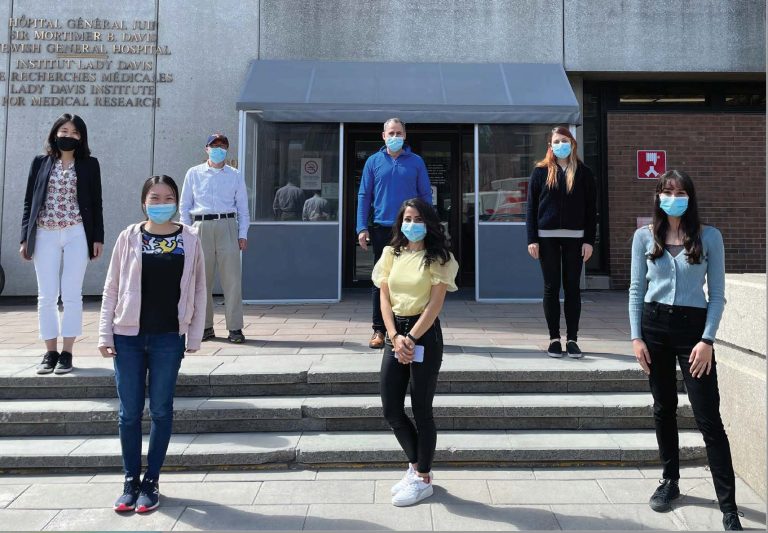
De gauche à droite : Jeesan Lee, Ting Cai, Zhenbao Yu, Nivine Srour, Stéphane Richard, Claudia Dominici et Sarah Khan.
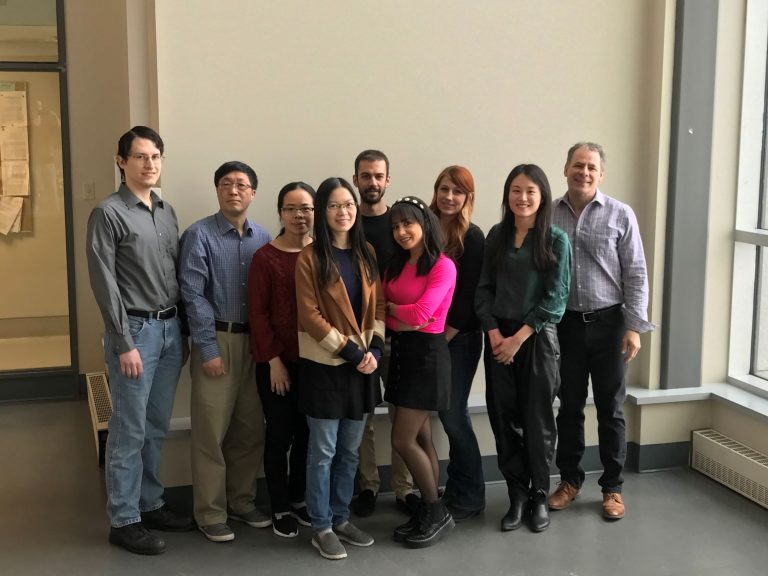
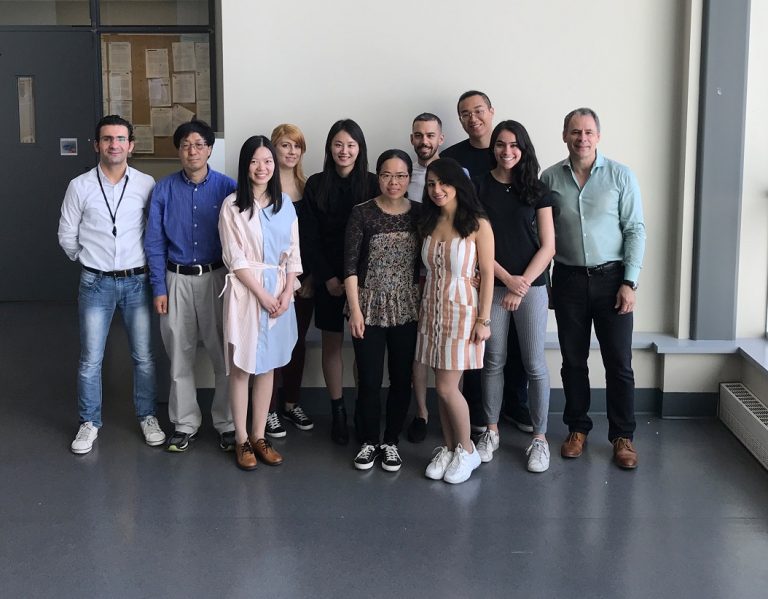
De gauche à droite : Sofiane Mersaoui, Zhenbao Yu, Ting Cai, Claudia Dominici, Jeesan Lee, Xiaoru Chen, Martin Karam, Nivine Srour, Bo Ren Long, Sarah Khan, Stéphane Richard.
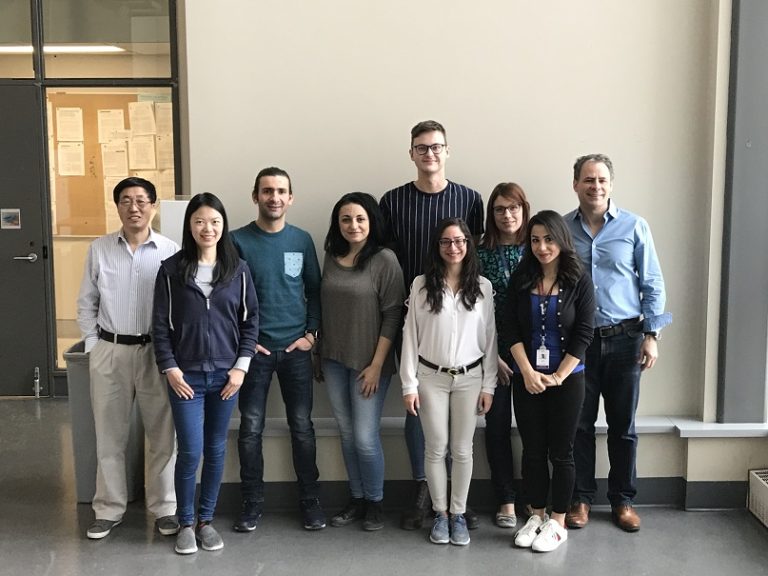
De gauche à droite : Zhenbao Yu, Ying Cai, Sofiane Mersaoui, Sara Calabretta, Nykan Mirchi, Sarah Kassis, Claudia Dominici, Nivine Srour, Stéphane Richard.
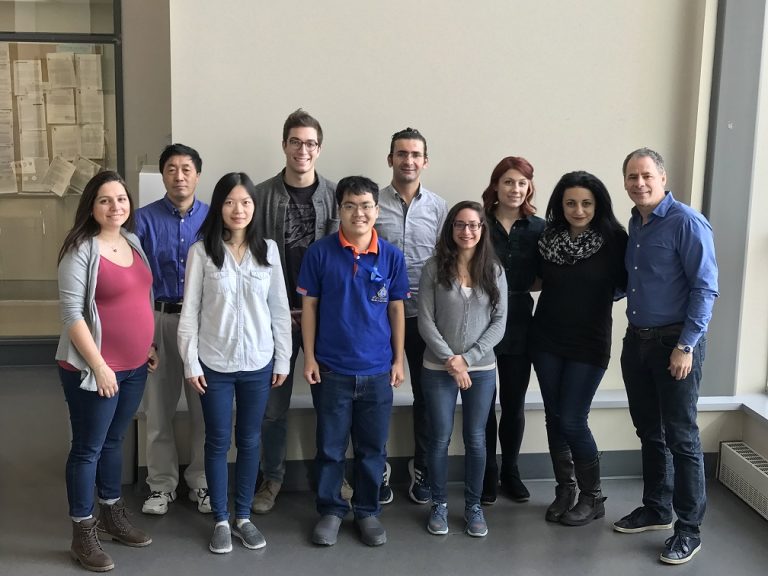
De gauche à droite : Lama Darbelli, Zhenbao Yu, Ying Cai, Nykan Mirchi, Minh Nguyen, Sofiane Mersaoui, Sarah Kassis, Claudia Dominici, Sara Calabretta, Stéphane Richard.
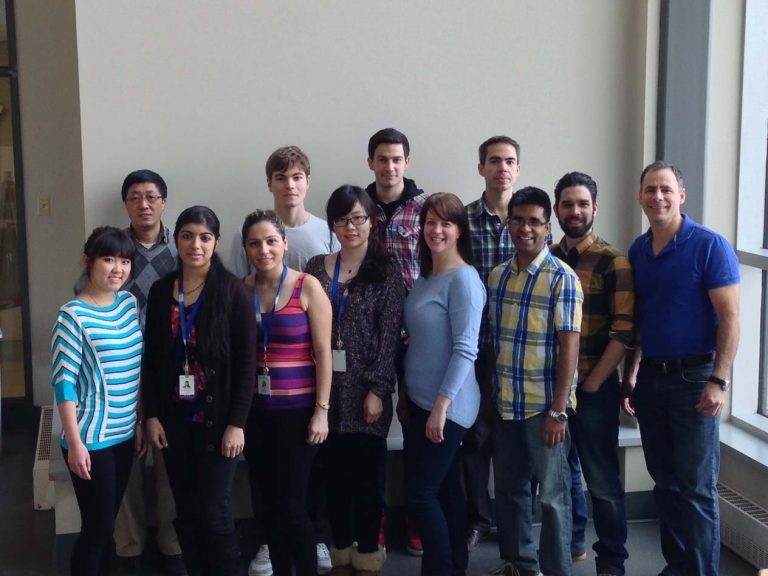
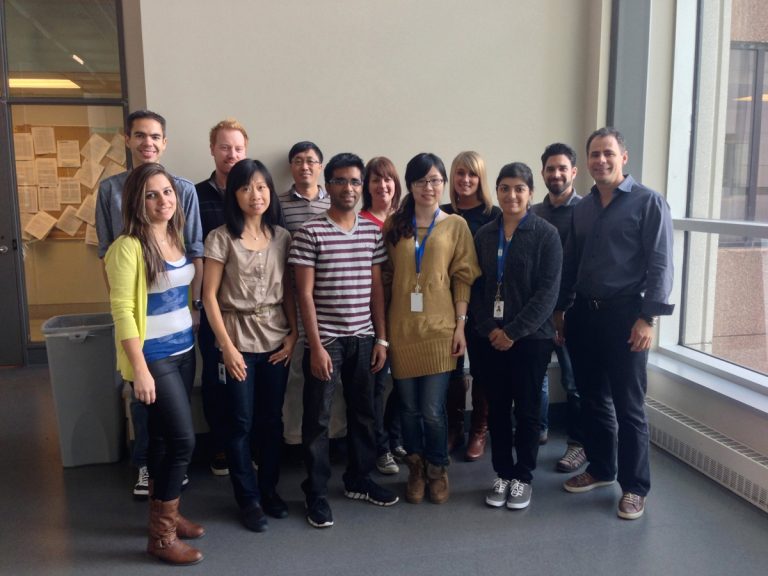
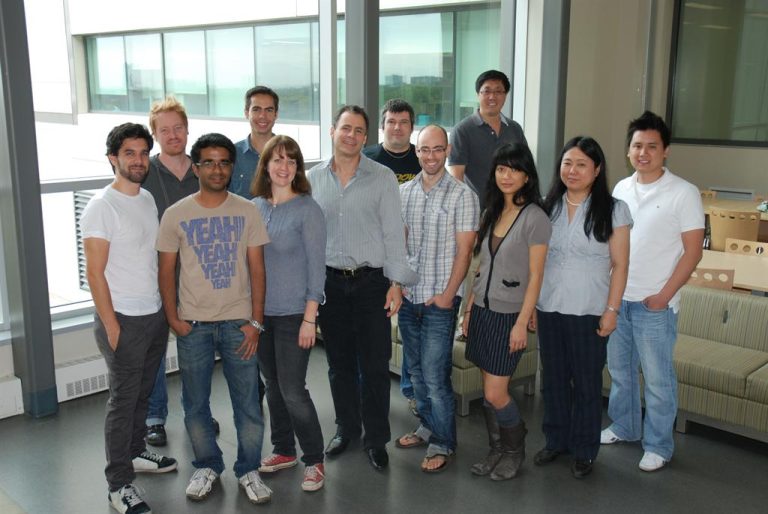
Contemporary research has uncovered a role for environmental copper in the development and progression of neurodegenerative diseases such as Alzheimer’s and Parkinson’s disease. Previous research implicated non-ceruloplasmin bound copper in the aggravation of neurodegenerative phenotypes. Our research explores the role of copper in ALS progression through monitoring of copper biomarkers and analyses of copper metabolism gene expression.
Lorem ipsum dolor sit amet consectetur adipisicing elit. Maxime mollitia, molestiae quas vel sint commodi repudiandae consequuntur voluptatum laborum numquam blanditiis harum quisquam eius sed odit fugiat iusto fuga praesentium optio, eaque rerum! Provident similique accusantium nemo autem. Veritatis obcaecati tenetur iure eius earum ut molestias architecto voluptate aliquam nihil, eveniet aliquid culpa officia aut! Impedit sit sunt quaerat, odit, tenetur error, harum nesciunt ipsum debitis quas aliquid. Reprehenderit, quia. Quo neque error repudiandae fuga? Ipsa laudantium molestias eos sapiente officiis modi at sunt excepturi expedita sint? Sed quibusdam recusandae alias error harum maxime adipisci amet laborum. Perspiciatis minima nesciunt dolorem! Officiis iure rerum voluptates a cumque velit quibusdam sed amet tempora. Sit laborum ab, eius fugit doloribus tenetur fugiat, temporibus enim commodi iusto libero magni deleniti quod quam consequuntur!
Our laboratory possesses the equipment for the process of histology and histochemistry and has access to the LDI Cell Imaging Facility under the supervision of Dr Christian Young (confocal microscope and LSM800 Airyscan). RT-qPCR for the quantitation of RNA and microRNAs is carried out at the SEGAL Cancer Center and we have developed CrisprCas9 expertise for genomic edition. More traditional techniques are also present in our laboratory, immunoblotting, RTPCR, primary cell cultures… We possess two organ baths allowing measurements of bladder strip contractility (2 machines in total). We have developed several models of bladder dysfunction in rats (partial bladder obstruction) and mice (streptozotocin induced type 1 diabetes, TallyHo) and the animal quarters of the LDI provide support and expertise on animal handling and surgeries.
For prostate cancer research, we have access to immune-histochemistry CODEX apparatus and SOMAscan for sensitive proteomic analysis inside the LDI.
Contemporary research has uncovered a role for environmental copper in the development and progression of neurodegenerative diseases such as Alzheimer’s and Parkinson’s disease. Previous research implicated non-ceruloplasmin bound copper in the aggravation of neurodegenerative phenotypes. Our research explores the role of copper in ALS progression through monitoring of copper biomarkers and analyses of copper metabolism gene expression.
Lorem ipsum dolor sit amet consectetur adipisicing elit. Maxime mollitia, molestiae quas vel sint commodi repudiandae consequuntur voluptatum laborum numquam blanditiis harum quisquam eius sed odit fugiat iusto fuga praesentium optio, eaque rerum! Provident similique accusantium nemo autem. Veritatis obcaecati tenetur iure eius earum ut molestias architecto voluptate aliquam nihil, eveniet aliquid culpa officia aut! Impedit sit sunt quaerat, odit, tenetur error, harum nesciunt ipsum debitis quas aliquid. Reprehenderit, quia. Quo neque error repudiandae fuga? Ipsa laudantium molestias eos sapiente officiis modi at sunt excepturi expedita sint? Sed quibusdam recusandae alias error harum maxime adipisci amet laborum. Perspiciatis minima nesciunt dolorem! Officiis iure rerum voluptates a cumque velit quibusdam sed amet tempora. Sit laborum ab, eius fugit doloribus tenetur fugiat, temporibus enim commodi iusto libero magni deleniti quod quam consequuntur!
On-Treatment Levels and Dynamic Changes of Genomic Instability in Circulating Tumor DNA Predict Response to Treatment and Outcome in Metastatic Breast Cancer Patients.
Aguilar-Mahecha A, Lafleur J, Brousse S, Savichtcheva O, Holden KA, Faulkner N, McLennan G, Jensen TJ, Basik M. Early, Cancers (Basel). 2021 Mar 16;13(6):1331.
Prognostic and predictive value of circulating tumor DNA during neoadjuvant chemotherapy for triple negative breast cancer.
Cavallone L, Aguilar-Mahecha A, Lafleur J, Brousse S, Aldamry M, Roseshter T, Lan C, Alirezaie N, Bareke E, Majewski J, Ferrario C, Hassan S, Discepola F, Seguin C, Mihalcioiu C, Marcus EA, Robidoux A, Roy JA, Pelmus M, Basik M. Sci Rep. 2020 Sep 7;10(1):14704.
A Unique Morphological Phenotype in Chemoresistant Triple-Negative Breast Cancer Reveals Metabolic Reprogramming and PLIN4 Expression as a Molecular Vulnerability.
Sirois I, Aguilar-Mahecha A, Lafleur J, Fowler E, Vu V, Scriver M, Buchanan M, Chabot C, Ramanathan A, Balachandran B, Légaré S, Przybytkowski E, Lan C, Krzemien U, Cavallone L, Aleynikova O, Ferrario C, Guilbert MC, Benlimame N, Saad A, Alaoui-Jamali M, Saragovi HU, Josephy S, O’Flanagan C, Hursting SD, Richard VR, Zahedi RP, Borchers CH, Bareke E, Nabavi S, Tonellato P, Roy JA, Robidoux A, Marcus EA, Mihalcioiu C, Majewski J, Basik M. Mol Cancer Res. 2019 Dec;17(12):2492-2507.
Metastatic breast carcinoma-associated fibroblasts have enhanced pro-tumorigenic properties related to increased IGF2 expression.
Gui Y, Aguilar-Mahecha A, Krzemien U, Hosein A, Buchanan M, Lafleur J, Pollak MN, Ferrario C, Basik M. Clin Cancer Res. 2019 Dec 1;25(23):7229-7242. doi: 10.1158/1078-0432.CCR-19-1268. PMID:31515454.
Precision Medicine Tools to Guide Therapy and Monitor Response to Treatment in a HER-2+ Gastric Cancer Patient: Case Report.
Aguilar-Mahecha A, Joseph S, Cavallone L, Buchanan M, Krzemien U, Batist G, Basik M. Front Oncol. 2019 Aug 6;9:698.
An integrated stress response via PKR suppresses HER2+ cancers and improves trastuzumab therapy.
Darini C, Ghaddar N, Chabot C, Assaker G, Sabri S, Wang S, Krishnamoorthy J, Buchanan M, Aguilar-Mahecha A, Abdulkarim B, Deschenes J, Torres J, Ursini-Siegel J, Basik M, Koromilas AE. Nat Commun. 2019 May 13;10(1):2139.
A study of pre-analytical variables and optimization of extraction method for circulating tumor DNA measurements by digital droplet PCR.
Cavallone L, Al-Damry M, Lafleur J, Lan C, Gonzalez-Ginestet P, Aguilar-Mahecha A, Basik M. Cancer Epidemiol Biomarkers Prev. 2019 Mar 1. doi: 10.1158/1055-9965.EPI-18-0586. [Epub ahead of print]PMID: 30824523.
The identification of challenges in tissue collection for biomarker studies: the Q-CROC-03 neoadjuvant breast cancer translational trial experience.
Aguilar-Mahecha A, Lafleur J, Pelmus M, Seguin C, Lan C, Discepola F, Kovacina B, Christodoulopoulos R, Salvucci O, Mihalcioiu C, Roy JA, Robidoux A, Marcus EA, Batist G, Basik M. Mod Pathol. 2017 Jul 28. doi: 10.1038/modpathol.2017.82. [Epub ahead of print].
SPEN, a new player in primary cilia formation and cell migration in breast cancer.
Légaré S, Chabot C, Basik M. Breast Cancer Res. 2017 Sep 6;19(1):104.
Targeted error-suppressed quantification of circulating tumor DNA using semi-degenerate barcoded adapters and biotinylated baits.
Alcaide M, Yu S, Davidson J, Albuquerque M, Bushell K, Fornika D, Arthur S, Grande BM, McNamara S, Tertre MCD, Batist G, Huntsman DG, Cavallone L, Aguilar A, Basik M, Johnson NA, Deyell RJ, Rassekh SR, Morin RD.
Sci Rep. 2017 Sep 5;7(1):10574.
Immuno-Matrix-Assisted Laser Desorption/Ionization Assays for Quantifying AKT1 and AKT2 in Breast and Colorectal Cancer Cell Lines and Tumors.
Popp R, Li H, LeBlanc A, Mohammed Y, Aguilar-Mahecha A, Chambers AG, Lan C, Poetz O, Basik M, Batist G, Borchers CH. Anal Chem. 2017 Oct 3;89(19):10592-10600.
Nonoperative Management for Invasive Breast Cancer After Neoadjuvant Systemic Therapy: Conceptual Basis and Fundamental International Feasibility Clinical Trials. Kuerer HM, Vrancken Peeters MTFD, Rea DW, Basik M, De Los Santos J, Heil J. Ann Surg Oncol. 2017 Aug 1.
The identification of challenges in tissue collection for biomarker studies: the Q-CROC-03 neoadjuvant breast cancer translational trial experience.
Aguilar-Mahecha A, Lafleur J, Pelmus M, Seguin C, Lan C, Discepola F, Kovacina B, Christodoulopoulos R, Salvucci O, Mihalcioiu C, Roy JA, Robidoux A, Marcus EA, Batist G, Basik M. Mod Pathol. 2017 Jul 28. doi: 10.1038/modpathol.2017.82.
Inhibition of EGFR, HER2, and HER3 signaling with AZD8931 in combination with anastrozole as an anticancer approach: Phase II randomized study in women with endocrine-therapy-naïve advanced breast cancer.
Johnston S, Basik M, Hegg R, Lausoontornsiri W, Grzeda L, Clemons M, Dreosti L, Mann H, Stuart M, Cristofanilli M. Breast Cancer Res Treat. 2016 Nov;160(1):91-99.
Minireview: The Link Between ERα Corepressors and Histone Deacetylases in Tamoxifen Resistance in Breast Cancer.
Légaré S, Basik M. Mol Endocrinol. 2016 Sep;30(9):965-76. doi: 10.1210/me.2016-1072.
PDK1-Dependent Metabolic Reprogramming Dictates Metastatic Potential in Breast Cancer. Dupuy F, Tabariès S, Andrzejewski S, Dong Z, Blagih J, Annis MG, Omeroglu A, Gao D, Leung S, Amir E, Clemons M, Aguilar-Mahecha A, Basik M, Vincent EE, St-Pierre J, Jones RG, Siegel PM. Cell Metab. 2015 Oct 6;22(4):577-89. doi: 10.1016/j.cmet.2015.08.007.
The Estrogen Receptor Cofactor SPEN Functions as a Tumor Suppressor and Candidate Biomarker of Drug Responsiveness in Hormone-Dependent Breast Cancers.
Légaré S, Cavallone L, Mamo A, Chabot C, Sirois I, Magliocco A, Klimowicz A, Tonin PN, Buchanan M, Keilty D, Hassan S, Laperrière D, Mader S, Aleynikova O, Basik M. Cancer Res. 2015 Oct 15;75(20):4351-63. doi: 10.1158/0008-5472.CAN-14-3475.
A functional in vitro model of heterotypic interactions reveals a role for interferon-positive carcinoma associated fibroblasts in breast cancer.
Hosein AN, Livingstone J, Buchanan M, Reid JF, Hallett M, Basik M. BMC Cancer. 2015 Mar 15;15:130. doi: 10.1186/s12885-015-1117-0.
Glycoproteomic comparison of clinical triple-negative and luminal breast tumors.
Hill JJ, Tremblay TL, Fauteux F, Li J, Wang E, Aguilar-Mahecha A, Basik M, O’Connor-McCourt M. J Proteome Res. 2015 Mar 6;14(3):1376-88. doi: 10.1021/pr500987r.
Sentinel node biopsy after neoadjuvant chemotherapy in biopsy-proven node-positive breast cancer: the SN FNAC study.
Boileau JF, Poirier B, Basik M, Holloway CM, Gaboury L, Sideris L, Meterissian S, Arnaout A, Brackstone M, McCready DR, Karp SE, Trop I, Lisbona A, Wright FC, Younan RJ, Provencher L, Patocskai E, Omeroglu A, Robidoux A. J Clin Oncol. 2015 Jan 20;33(3):258-64. doi: 10.1200/JCO.2014.55.7827. Epub 2014 Dec 1.
Chromosome-breakage genomic instability and chromothripsis in breast cancer.
Przybytkowski E, Lenkiewicz E, Barrett MT, Klein K, Nabavi S, Greenwood CM, Basik M. BMC Genomics. 2014 Jul 9;15:579. doi: 10.1186/1471-2164-15-579.
Testing devices or experimental systems? Cancer clinical trials take the genomic turn.
Nelson NC, Keating P, Cambrosio A, Aguilar-Mahecha A, Basik M. Soc Sci Med. 2014 Jun;111:74-83. doi: 10.1016/j.socscimed.2014.04.008.
Imiquimod in the treatment of breast cancer skin metastasis.
Henriques L, Palumbo M, Guay MP, Bahoric B, Basik M, Kavan P, Batist G. J Clin Oncol. 2014 Mar 10;32(8):e22-5. doi: 10.1200/JCO.2012.46.4883.
RSF1 and not cyclin D1 gene amplification may predict lack of benefit from adjuvant tamoxifen in high-risk pre-menopausal women in the MA.12 randomized clinical trial.
Keilty D, Buchanan M, Ntapolias K, Aleynikova O, Tu D, Li X, Shepherd L, Bramwell V, Basik M. PLoS One. 2013 Dec 19;8(12):e81740. doi: 10.1371/journal.pone.0081740.
Biopsies: next-generation biospecimens for tailoring therapy.
Basik M, Aguilar-Mahecha A, Rousseau C, Diaz Z, Tejpar S, Spatz A, Greenwood CM, Batist G. Nat Rev Clin Oncol. 2013 Aug;10(8):437-50.
Next-generation biobanking of metastases to enable multidimensional molecular profiling in personalized medicine.
Diaz Z, Aguilar-Mahecha A, Paquet ER, Basik M, Orain M, Camlioglu E, Constantin A, Benlimame N, Bachvarov D, Jannot G, Simard MJ, Chabot B, Gologan A, Klinck R, Gagnon-Kugler T, Lespérance B, Samson B, Kavan P, Alcindor T, Dalfen R, Lan C, Chabot C, Buchanan M, Przybytkowski E, Qureshi S, Rousseau C, Spatz A, Têtu B, Batist G. Mod Pathol. 2013 Nov;26(11):1413-24. doi: 10.1038/modpathol.2013.81.
Ultradense array CGH and discovery of micro-copy number alterations and gene fusions in the cancer genome.
Przybytkowski E, Aguilar-Mahecha A, Nabavi S, Tonellato PJ, Basik M. Methods Mol Biol. 2013;973:15-38.
Exosomes mediate stromal mobilization of autocrine Wnt-PCP signaling in breast cancer cell migration.
Luga V, Zhang L, Viloria-Petit AM, Ogunjimi AA, Inanlou MR, Chiu E, Buchanan M, Hosein AN, Basik M, Wrana JL. Cell. 2012 Dec 21;151(7):1542-56.
The effect of pre-analytical variability on the measurement of MRM-MS-based mid- to high-abundance plasma protein biomarkers and a panel of cytokines.
Aguilar-Mahecha A, Kuzyk MA, Domanski D, Borchers CH, Basik M. PLoS One. 2012;7(6).
An integrated genomic approach identifies ARID1A as a candidate tumor-suppressor gene in breast cancer.
Mamo A, Cavallone L, Tuzmen S, Chabot C, Ferrario C, Hassan S, Edgren H, Kallioniemi O, Aleynikova O, Przybytkowski E, Malcolm K, Mousses S, Tonin PN, Basik M. Oncogene. 2012 Apr 19;31(16):2090-100.
The use of ultra-dense array CGH analysis for the discovery of micro-copy number alterations and gene fusions in the cancer genome.
Przybytkowski E, Ferrario C, Basik M. BMC Med Genomics. 2011 Jan 27;4:16. doi: 10.1186/1755-8794-4-16.
CXCR4 peptide antagonist inhibits primary breast tumor growth, metastasis and enhances the efficacy of anti-VEGF treatment or docetaxel in a transgenic mouse model.
Hassan S, Buchanan M, Jahan K, Aguilar-Mahecha A, Gaboury L, Muller WJ, Alsawafi Y, Mourskaia AA, Siegel PM, Salvucci O, Basik M. Int J Cancer. 2011 Jul 1;129(1):225-32.
Breast carcinoma-associated fibroblasts rarely contain p53 mutations or chromosomal aberrations.
Hosein AN, Wu M, Arcand SL, Lavallée S, Hébert J, Tonin PN, Basik M. Cancer Res. 2010 Jul 15;70(14):5770-7. doi: 10.1158/0008-5472.CAN-10-0673.
The influence of tumor-host interactions in the stromal cell-derived factor-1/CXCR4 ligand/receptor axis in determining metastatic risk in breast cancer.
Hassan S, Ferrario C, Saragovi U, Quenneville L, Gaboury L, Baccarelli A, Salvucci O, Basik M. Am J Pathol. 2009 Jul;175(1):66-73. doi: 10.2353/ajpath.2009.080948.
Uri Saragovi, McGill University, Montreal Canada
Indra Gupta, McGill University, Montreal Canada
Jeremy Burton, Western University, London Canada
Stephane Bolduc, Université Laval, Québec Canada
Lori Lerner, Boston University School of Medicine, Boston, USA
Gilles Karsenty, Aix-Marseille Université, Marseille France
Dr. Brandon Pearson, Columbia University, New York
Dr. John Wise, University of Louisville, Kentucky
Dr. Wilson Miller, Lady Davis Institute, Montreal
Dr. Sonia del Rincon, Lady Davis Institute, Montreal
Dr. Carolyn Baglole, RI-MUHC, McGill University, Montreal
Dr. Jun Ding, RI-MUHC, McGill University, Montreal
Dr. Susan Gaskin, Dep’t of Chemical Engineering, McGill University, Montreal
Dr. Bernard Robaire, Dep’t of Pharmacology McGill University, Montreal
Dr. Brandon Pearson, Columbia University, New York
Dr. John Wise, University of Louisville, Kentucky
Lorem ipsum dolor sit amet consectetur adipisicing elit. Maxime mollitia, molestiae quas vel sint commodi repudiandae consequuntur voluptatum laborum numquam blanditiis harum quisquam eius sed odit fugiat iusto fuga praesentium optio, eaque rerum! Provident similique accusantium nemo autem. Veritatis obcaecati tenetur iure eius earum ut molestias architecto voluptate aliquam nihil, eveniet aliquid culpa officia aut! Impedit sit sunt quaerat, odit, tenetur error, harum nesciunt ipsum debitis quas aliquid. Reprehenderit, quia. Quo neque error repudiandae fuga? Ipsa laudantium molestias eos sapiente officiis modi at sunt excepturi expedita sint? Sed quibusdam recusandae alias error harum maxime adipisci amet laborum. Perspiciatis minima nesciunt dolorem! Officiis iure rerum voluptates a cumque velit quibusdam sed amet tempora. Sit laborum ab, eius fugit doloribus tenetur fugiat, temporibus enim commodi iusto libero magni deleniti quod quam consequuntur!
2023
Kathryn Rolph Award: In recognition of her outstanding achievements and leadership, contributing to the advancement of the Department of Surgery, Faculty of Medicine, McGill University
2019
Jian Qin
Deanna MacNeil
CIHR CGS-M, CIHR Doctoral Award, Cole Foundation Studentship
Tsz Wai (Josephine) Chu
Johanna Mancini
FRQS doctoral award, Cole Foundation Studentship
Yasmin D’Souza
May Shawi
CIHR Doctoral Award, Cole Foundation Studentship
Marie Eve Brault
Johans Fakhoury
McGill University Faculty of Medicine Internal Studentship
Maria Antonietta Cerone
Tara Moriarty
CIHR Doctoral Award
Sylvain Huard
François Bachand
CIHR Doctoral Award
2022
Best ePoster at the Société Internationale d’Urolgie 42nd Congress November 9-13 2022
2022
2022
Best basic science abstract – Society of Urodynamics, Female Pelvic Medicine and Urogenital Reconstruction Annual meeting Annual Meeting 2022
2021
Best abstract in the Translational Science category at the 6th Annual Multidisciplinary Benign Urology Research Symposium April 29, 2021
2020
2018
Spinal Cord Best Review Paper Award for papers published in 2017, Spinal Cord (Nature Journal)
2018
2017
International Continence Society Annual Meeting 2017: Best Abstract in category
2017
Johans Fakhoury
McGill University Faculty of Medicine Internal Studentship
Hannah Chui
NSERC USRA recipientCIHR CGS-M Award
Dominique Rinfret
Michelle Shen
NSERC USRA recipient
Ricky Kwan
McGill University Faculty of Medicine Internal Studentship
Yasmin D’Souza
May Shawi
CIHR Doctoral Award, Cole Foundation Studentship
Marie Eve Brault
Johans Fakhoury
McGill University Faculty of Medicine Internal Studentship
A few interesting links related to Chantal Autexier, her laboratory and herresearch themes:
Dr. Wilson Miller, Lady Davis Institute, Montreal
Dr. Sonia del Rincon, Lady Davis Institute, Montreal
Dr. Carolyn Baglole, RI-MUHC, McGill University, Montreal
Dr. Jun Ding, RI-MUHC, McGill University, Montreal
Dr. Susan Gaskin, Dep’t of Chemical Engineering, McGill University, Montreal
Dr. Bernard Robaire, Dep’t of Pharmacology McGill University, Montreal
Dr. Brandon Pearson, Columbia University, New York
Dr. John Wise, University of Louisville, Kentucky
Lorem ipsum dolor sit amet consectetur adipisicing elit. Maxime mollitia, molestiae quas vel sint commodi repudiandae consequuntur voluptatum laborum numquam blanditiis harum quisquam eius sed odit fugiat iusto fuga praesentium optio, eaque rerum! Provident similique accusantium nemo autem. Veritatis obcaecati tenetur iure eius earum ut molestias architecto voluptate aliquam nihil, eveniet aliquid culpa officia aut! Impedit sit sunt quaerat, odit, tenetur error, harum nesciunt ipsum debitis quas aliquid. Reprehenderit, quia. Quo neque error repudiandae fuga? Ipsa laudantium molestias eos sapiente officiis modi at sunt excepturi expedita sint? Sed quibusdam recusandae alias error harum maxime adipisci amet laborum. Perspiciatis minima nesciunt dolorem! Officiis iure rerum voluptates a cumque velit quibusdam sed amet tempora. Sit laborum ab, eius fugit doloribus tenetur fugiat, temporibus enim commodi iusto libero magni deleniti quod quam consequuntur!
Dr. Wilson Miller, Lady Davis Institute, Montreal
Dr. Sonia del Rincon, Lady Davis Institute, Montreal
Dr. Carolyn Baglole, RI-MUHC, McGill University, Montreal
Dr. Jun Ding, RI-MUHC, McGill University, Montreal
Dr. Susan Gaskin, Dep’t of Chemical Engineering, McGill University, Montreal
Dr. Bernard Robaire, Dep’t of Pharmacology McGill University, Montreal
Dr. Brandon Pearson, Columbia University, New York
Dr. John Wise, University of Louisville, Kentucky
Current research activities have received support from the following sources:
Special thanks to all our private donors, thanks to your generosity our laboratory has been able to acquire a digital PCR machine to detect tumor DNA in plasma from cancer patients, establish a patient derived xenograft platform and support several research projects in the laboratory.
3755, Ch. Côte Ste-Catherine
Montréal, Québec H3T 1E2
Courriel :
Reception:
Bureau :
Laboratoire :
Faire la différence, vous avez ce don! Votre contribution soutiendra la recherche essentielle menée à l’Institut Lady Davis qui permettra la prévention des maladies, des diagnostics plus précis, des dépistages plus rapides, des traitements innovants et plus performants, une meilleure qualité de vie, le bien-être et l’espoir pour nous tous.
Copyright © 2024 | Lady Davis Institute for Medical Research/Jewish General Hospital
Conception et développement : Yankee Media